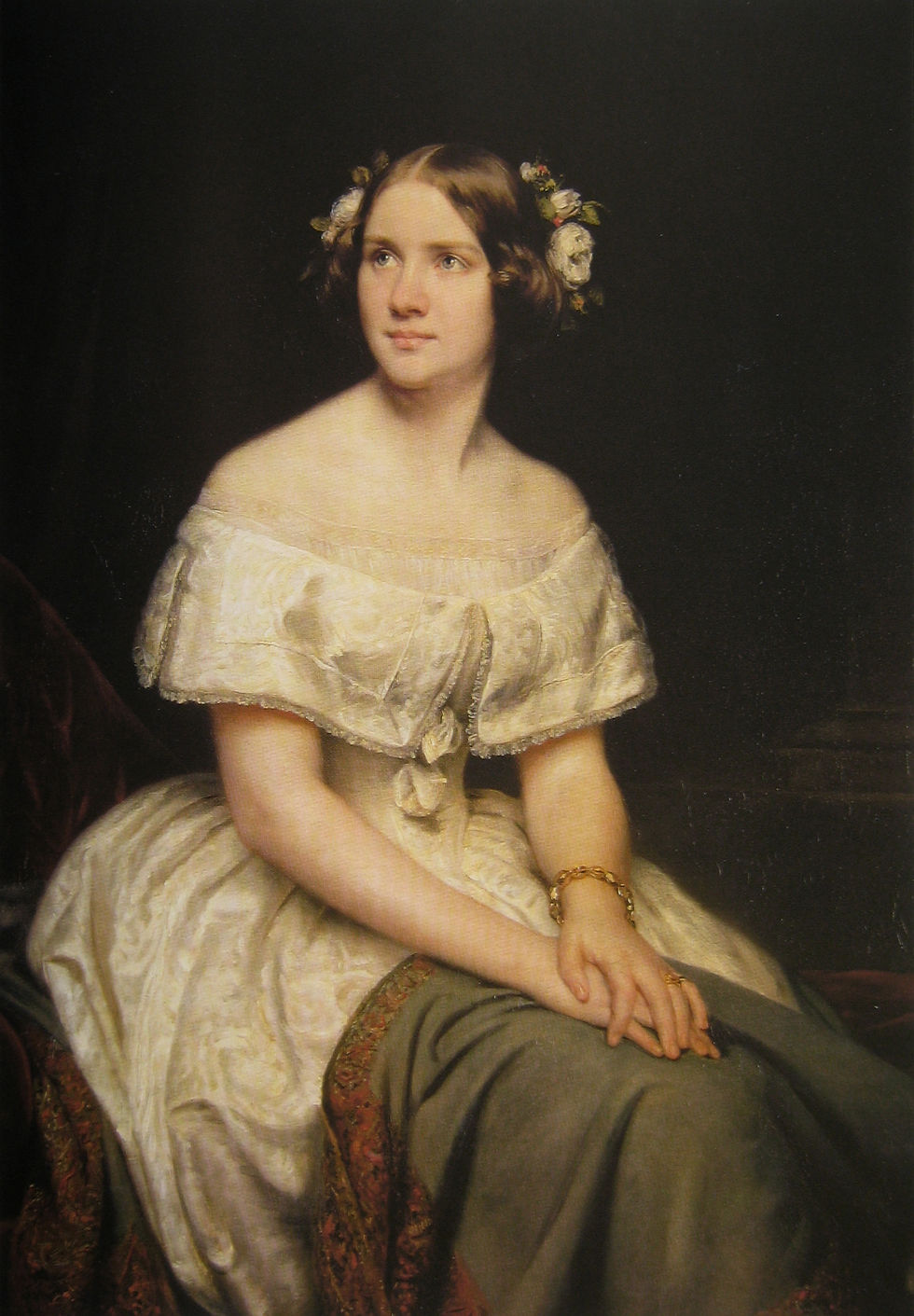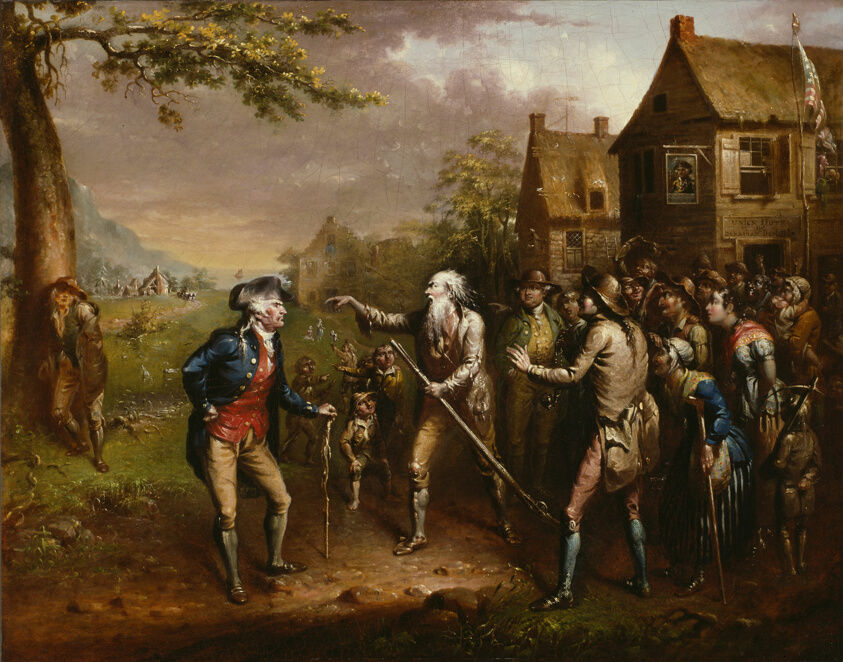George Frederick Bristow
- Eduardo Montes-Bradley

- Oct 30, 2025
- 6 min read
The following unsigned article appeared in The Choir Leader in December 1898—the very month of George Frederick Bristow’s death. The author could not have known that the composer would pass away only weeks later, and thus the piece stands midway between tribute and obituary. Written in the past tense yet with the expectation of further work to come, it praises Bristow’s integrity, idealism, and devotion to American musical life while lamenting the nation’s failure to recognize its own artists. The result is a striking document in which biographical sketch and elegy meet almost by accident. As originally published in The Choir Leader, Vol. 5, No. 10 (December 1898), pp. 1–2.

Some men achieve a large popular success on a very small capital of ability, because they make general reputation their goal and study how to attain it; others seek only personal culture, real results, and the realization of high ideals, but, in spite of native ability, sustained effort, and noble work, miss the more extensive popular acceptance and appreciation they deserve—either because they are too indifferent to use the necessary methods to secure it, or too ideally sensitive to accept it except as a spontaneous tribute. Sousa, with his catchy marches and opera bouffe, is an example of the former class, while the subject of our present sketch is a notable representative of the latter.
Not that Mr. Bristow has not been appreciated, for the positions he has occupied and the work he has accomplished show that, locally at least, he has received considerable honor; but, after all, in a national way he has not received the recognition his magnificent talents and scholarship deserved. He was not exactly fortunate in the time of his birth. Had he been born fifteen or twenty years later, it would have been better for his reputation. In his prime he was too far ahead of his day and generation to be in touch with popular currents of feeling; and by the time musical culture had risen to the necessary standard, his classical, noble style was not acceptable to the hysterical chromatic school of critics who at present make the standards to which the American musical public bows so slavishly.
“’Tis true, ’tis pity; ’tis pity, ’tis true,” that this devotion to modernity—a homeopathic dilution of Wagnerism of the millionth potency—should have robbed the grand work of this American composer of the opportunity of enriching and ennobling the American artistic consciousness. After all, it is not Mr. Bristow’s loss we deplore, but that of the American musical public, which has taken a flying leap from the negro minstrel ditty to the decadent rococo style of Liszt, Saint-Saëns, and Grieg, and accepted the attitude of a far-away province that looks over the sea for its ideals of culture and art, instead of normally developing its own type of art in an intelligent way.
George Frederick Bristow was born in Brooklyn, New York, on December 19, 1825. His musical education was almost ideal, for he began his studies at the age of five. His father was his teacher in piano and harmony. For the violin he studied first with an Irish teacher bearing the German name of Meyer, and later under Macfarren, President of the Royal Academy of Music in London. He was intimately associated with Ole Bull, to whom he acknowledged many valuable hints.
At eleven he entered an orchestra as a professional violinist; at thirteen he became its second leader. At sixteen he was a charter member of the Philharmonic Society, in which he still retains membership. One of the Society’s first concerts included Bristow’s First Overture. Before he was twenty, the same Society performed his Concert Overture, Op. 3, and his Symphony in E-flat.

We have not space to follow step by step these fifty years of composition and public service, and can only note the more striking points in Mr. Bristow’s career. He was concertmaster under Sir Julius Benedict during Jenny Lind’s American tour. Jullien gave him the same position and frequently played his Symphony in D minor, for which he paid Bristow the remarkable sum of $200—an extraordinary fee in those days for an American composition. Bristow later became the efficient conductor of the Philharmonic Society, remaining there eleven years. The Mendelssohn Union was also under his direction for three years. He served as successful head of the music department of the New York public schools for many years, laying the foundation for much of the city’s present musical culture.

In the musical history of what is now Greater New York, Bristow has written his name large and imperishably. His thoughts turned toward large enterprises, as his early compositions show. In addition to those already mentioned, he composed the Symphony in F-sharp minor and the Arcadian Symphony, also overtures titled Winter’s Tale, Columbus, and The Great Republic. His first oratorio, Praise to God, was thrice performed with increasing interest during the early 1860s. His oratorio Daniel was rendered by the Mendelssohn Union in 1867 with Parepa Rosa as prima donna and was received with great favor.
We publish in The Choir Leader this month one of its choruses, hitherto unpublished. Our larger choirs will find it very strong music, as befits Mr. Bristow—a worthy American successor to the great oratorio writers. He also did notable work in opera: Rip Van Winkle, first produced in 1855, proved a great success and was to have been revived in 1865 by Max Maretzek with Clara Louise Kellogg in the leading role. All preparations were completed when the Academy of Music burned, destroying scenery, costumes, and scores.
Some energetic opera director should honor American genius enough to revive it, for we believe it would now be more successful than ever. Mr. Bristow had other operas in progress, but they were never completed—probably for lack of the inspiration a waiting manager might have supplied.
His Niagara was given by the Manuscript Society of New York last spring and evoked great enthusiasm for its wealth of ideas and contrapuntal resources, no less than for its beauty and sublimity. His treatment of Old Hundredth as a theme for variations displayed his scholarship at its best. The purity of form, melody, and classical thought pleased all save the little clique of “Wagner-haunted” foreign critics, who did not do it justice in the public press. They are not to be blamed, but pitied, that they cannot recognize good music unless it bears the “hallmark” of the foreign.
Mr. George Frederick Bristow has written innumerable other compositions—sonatas, fantasias, nocturnes, church services, masses, cantatas, anthems—too many to enumerate. Most of his best work remains in manuscript, there being no commercial promise in the class of composition to which he gave his best strength. Like Schubert, his work will be valued more highly after his death than during his lifetime, and his manuscripts will attain the recognition their intrinsic merits deserve.

Mr. Bristow possessed varied musical gifts of a high order. His organ playing was strong and severe in style; as a conductor he was forceful and suggestive in his readings; he succeeded admirably in large choruses, securing fine results from modest materials. As a teacher he was lucid, patient, and exact; as a solo performer he excelled on piano, violin, and organ alike. To all he undertook he brought intelligence, conscientiousness, and an unselfconscious impulse toward genuine, lasting rather than showy results. He is modest and unassuming to a fault, simple in social and personal taste, and full of a sweet, genial humor that endears him to all who appreciate genuineness.
It gives us great pleasure to offer this little tribute to his genius and to the good work he has done. If we can add to the wider reputation he so richly deserves, and to the patriotic impulse leading our singers to honor American composers and to throw off the partiality for foreign music—largely fostered by publishers who can cheaply reprint it—we shall be well satisfied.
Editorial Note
George Frederick Bristow died on December 13, 1898, only days after this article appeared in The Choir Leader. The piece thus stands as one of the final contemporary tributes written during his lifetime, bridging admiration and elegy.
This document has been transcribed and restored on the occasion of Bristow’s Bicentennial as part of the ongoing research for the film project George Frederick Bristow: American Composer, currently in production with the support of the Joseph and Robert Cornell Memorial Foundation.








Comments